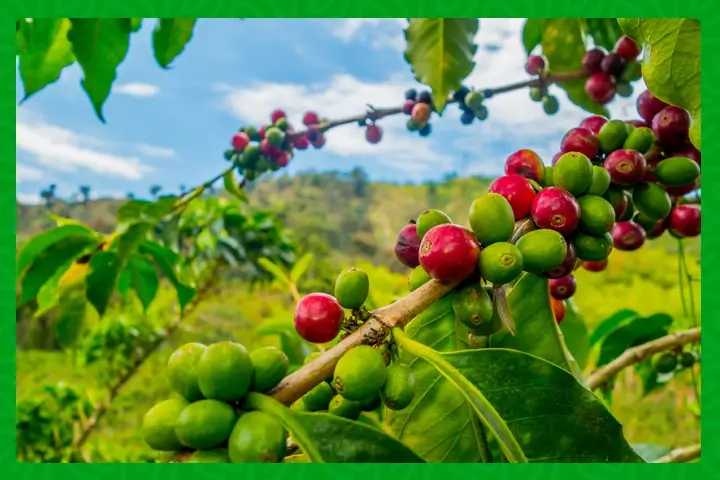
Kenya Rolls Out Centralized Coffee Payment System to Boost Farmer Earnings and Curb Corruption
A New Era for Kenya’s Coffee Farmers
Starting July 2025, Kenya’s coffee growers will receive their payments through a centralized platform managed by Co-operative Bank. This landmark reform, unveiled by Cooperatives and MSMEs Cabinet Secretary Wycliffe Oparanya during the launch of a modern coffee factory in Bungoma, aims to enhance transparency, eliminate corruption and ensure farmers earn their fair share.
Tackling Exploitation in Cooperative Societies
For years, dishonest middlemen within coffee cooperatives have siphoned off payments destined for hardworking farmers. Oparanya made clear that the government will no longer tolerate these abuses. “Coffee farmers have long been exploited by dishonest individuals within cooperative societies,” he said. “By channeling payments through Co-operative Bank, we aim to close those loopholes and ensure that farmers receive what they truly deserve.”
How the Centralized Payment Model Works
Under the new system, every kilogram of coffee delivered to a cooperative society will be valued at KES 40 (approximately US$0.31). Of this amount:
- 80 percent flows directly into the farmer’s account at Co-operative Bank.
- 20 percent stays with the cooperative society to cover operational costs and support community development projects.
- Any surplus after costs may be distributed back to farmers as a bonus.
By guaranteeing 80 percent of the sale price reaches the grower, the plan directly boosts farmer earnings and injects fresh confidence into the sector.
Expanding Financial Inclusion for All Farmers
Recognizing that not every coffee grower banks with Co-operative Bank, the government is in talks with Kenya Commercial Bank (KCB) and Family Bank. These discussions aim to ensure farmers throughout Kenya, even in remote areas, can open accounts and receive payments without costly travel or delays. “We want to eliminate any barriers to payment and ensure all farmers, regardless of location, can access the services they need,” Oparanya emphasized.
Encouraging Productivity and Youth Engagement
With global demand for Kenyan coffee on the rise, Oparanya urged farmers to adopt best agricultural practices and increase yields. He also called on Kenya’s youth to view coffee farming as a viable career path, saying that young energy and innovation are vital to securing the sector’s future.
Adding Value Locally: Milling and Cartel Reforms
In tandem with the payment overhaul, the government plans to upgrade the Bungoma coffee milling facility to handle full-cycle processing. Local milling will cut export costs and reduce the need to reimport processed coffee. At the same time, new elections for leadership in coffee societies will dismantle entrenched cartels, boosting accountability and empowering honest leaders.
Central Region Leads Production; Premium Grades Shine
A recent Nairobi Coffee Exchange report shows that the Central region accounts for 51 percent of Kenya’s coffee output. Premium AA grades have seen notable gains in Kiambu and Kericho, while Kirinyaga farmers achieved the highest price at US$353 per 50 kg bag. These successes underscore the potential earnings boost when quality and transparency go hand in hand.
What This Means for Kenyan Coffee Exports
By ensuring payments reach farmers promptly and fairly, Kenya positions itself as a more reliable supplier in the competitive global coffee market. International buyers value traceability, ethical sourcing and consistent quality, all hallmarks of the new centralized payment system. As farmers reinvest higher earnings into better inputs and sustainable practices, Kenyan coffee’s reputation for excellence stands to grow.
Key Benefits at a Glance
- Improved Farmer Earnings: 80 percent of proceeds paid directly into farmer accounts.
- Reduced Corruption: Centralized transactions eliminate middleman skimming.
- Financial Inclusion: Partnerships with major banks ensure nationwide access.
- Local Value Addition: Upgraded milling cuts costs and boosts local jobs.
- Sector Accountability: New leadership elections curb cartel influence.
- Global Competitiveness: Transparency and quality enhance Kenya’s export appeal.
Looking Ahead
As Kenya transitions to the centralized coffee payment system in July 2025, the coffee sector enters a transformative chapter. Farmers can look forward to steady, transparent income streams while cooperatives gain the funds they need to improve operations and uplift rural communities. With robust banking partnerships and a commitment to ethical leadership, Kenya’s coffee industry is primed to deliver higher earnings for growers, stronger exports for the nation and a revitalized legacy of world-class Kenyan coffee.
Stay updated with the latest farming tips and agriculture industry news from Africa by subscribing to our newsletter. Don’t miss out on valuable insights and updates. Follow us on Twitter, LinkedIn, and Facebook to join our farming community and stay connected with us.


















